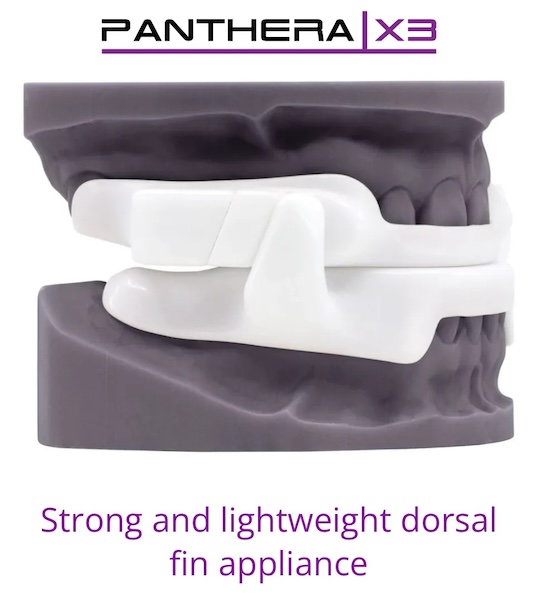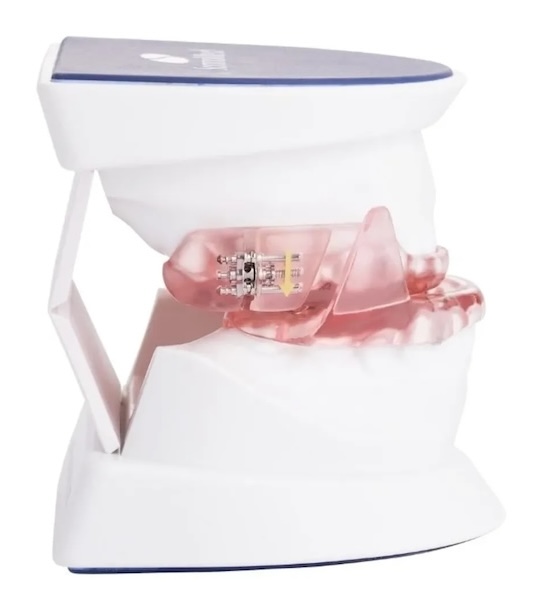What is sleep apnea?
Sleep apnea, or obstructive sleep apnea, is the condition where the tongue collapses against the back of the throat, closing off the throat for 10 seconds or more, five or more times per hour. This condition is different from snoring, which is merely the tongue flapping against the back of the throat. In sleep apnea, the tongue completely obstructs the throat, stopping the flow of air and your ability to breathe for a significant period of time.
Who is at risk for sleep apnea?
About a third of patients with sleep apnea are of normal weight and build. Although we often associate a higher risk for snoring and obstructive sleep apnea with heavier individuals, this isn't always the case. If you're snoring, it's wise to get tested for sleep apnea.
You have the option of conducting home sleep tests either through your doctor or by utilizing the ones we provide in our office. We offer these tests at a cost of $299. This price includes a sleep study that is read and evaluated by a board-certified sleep specialist located in the state of Virginia. The purpose of this test is to diagnose whether you have sleep apnea. If the diagnosis is positive, we can then discuss various treatment options to manage and treat your sleep apnea effectively.
What are the treatment options for sleep apnea?
There are several treatment options for sleep apnea. Dental appliances can help those with mild to moderate sleep apnea. These appliances hold the lower jaw forward to prevent the tongue from collapsing against the back of the throat. For severe sleep apnea, a Continuous Positive Airway Pressure (CPAP) machine is often recommended. There are also other options like the Inspire device, which is a nerve stimulator that keeps the throat open.
How does sleep apnea affect your health?
Sleep apnea can have a significant impact on your health. It's linked to various serious conditions, including cancer, diabetes, heart disease, and stroke. Additionally, it can lead to daytime sleepiness and may be associated with many accidents.
When we're short on sleep, our cortisol levels tend to rise, which can mask feelings of tiredness. In our office, we offer sleep screening questionnaires to help assess your risk of sleep disorders. However, the most effective method to understand your sleep patterns and potential issues is through a sleep study. If you have a sleeping partner who has observed irregularities in your sleep, such as snoring or pauses in breathing, I strongly recommend undergoing a sleep study. You can consult with your doctor, or take advantage of the sleep studies we offer here in our office.
The cost for a sleep study in our office is $299. The device used for this study is similar to an Apple Watch, equipped with a pulse oximeter and a chest sleeve. This device provides comprehensive information about your sleep patterns, including details like when you snore, your sleep position, which side you roll onto, and the number of apneic events you experience per hour. Based on the severity of your sleep apnea – whether it's mild, moderate, or severe – a dental appliance might be an appropriate treatment option. Dental appliances are also highly effective for managing snoring in general.
There is a notable correlation between grinding teeth and sleep apnea. Thankfully, the dental appliances we create for snoring and sleep apnea serve a dual purpose. They not only act as night guards, protecting your teeth from grinding and relieving stress on the jaw joint, but they also help open up the airway, which is beneficial for sleep apnea.
Are there any screening methods for sleep apnea?
Yes, there are several screening methods for sleep apnea. At our office, we offer a health questionnaire that includes screening questions for snoring and sleep apnea. We also perform airway screenings during patient exams. Beyond these, there are online screening questionnaires like the EPS or Sleepiness Scale and the Stop Bang questionnaire.
The definitive diagnosis of sleep apnea requires a sleep test, which can be conducted either through a home sleep study or at a specialized facility. Each option has its advantages and disadvantages. I generally recommend a home sleep test because it allows you to sleep in your natural environment, which can yield more accurate results regarding your typical sleep patterns and disturbances. Concerning the cost, if your medical insurance co-pay for such a test exceeds $300, please inform us. We offer home sleep tests for $299, providing a more affordable alternative while still ensuring accurate and reliable diagnostic results. This option is particularly beneficial for those looking to manage expenses while seeking a diagnosis for sleep apnea.
What are some treatment options for snoring and sleep apnea?
You have several options for managing sleep apnea. Firstly, there are dental appliances which hold the lower jaw forward to help open up the airway. Another common treatment is the use of a CPAP machine, which involves wearing a mask that delivers pressure to keep the airway open. Additionally, there's now a surgical procedure called Inspire. This is somewhat similar to a pacemaker for the heart. It involves a small lead inserted in the chest, which you activate with a remote control before going to bed. This lead extends to the throat and stimulates it to maintain an open airway.
There are also surgeries available to physically open up the airway. These are particularly suitable for some patients, especially those with obstructions like large tonsils or adenoids. Inspire is a newer option and works well for many patients. Then, of course, there are the CPAP and dental appliances. The dental appliance has several advantages. It is one of the more affordable options, is portable, easy to use, and also helps with teeth grinding.
Can surgery help me heal sleep apnea?
Yes, certain surgical procedures can help treat sleep apnea. These are mainly for the removal of obstructions like large tonsils and adenoids. The Inspire device, which stimulates the throat to keep it open, is another surgical option.
What appliances do dentists recommend for snoring and sleep apnea?
Dentists recommend various mandibular advancement appliances for snoring and sleep apnea. Some popular options include the Panthera appliance which is made of thin, medical-grade nylon, and the Tap appliance which has been around for a long time. All these appliances work by moving the lower jaw or tongue forward to open up the airway.
If you have concerns about storage or sleep apnea, or if your current dentist doesn't treat snoring or sleep apnea, please feel free to give us a call. I'm more than happy to conduct a consultation for you at our office. You can reach us at our office number, (703) 451-4500. I would be delighted to discuss the dental appliances we offer in more detail.
Sleep apnea is a common condition that involves breathing problems during sleep. The throat muscles relax and block the airway. Snoring is disrupted air flow; sleep apnea is a blockage of airflow. Sleep apnea affects about 18 million people in the U.S. and patients with sleep apnea often experience loud snoring and daytime sleepiness. Patients with sleep apnea can experience loss of air flow hundreds of times per night, sometimes for a minute or longer.
Because sufferers are roused from sleep briefly to resume proper breathing, disrupting and lowering the quality of a person’s rest, sleep apnea can cause a number of problems. If left untreated, it can result in high blood pressure, cardiovascular disease, stroke, memory problems, weight gain, impotency, headaches, and daytime fatigue leading to job impairment and motor vehicle crashes. Sleep apnea should always be diagnosed by a sleep specialist.
Patient Testimonial
Sleep Apnea Appliances
- The American Academy of Sleep Medicine recommends oral appliances as the first line of treatment for patients with mild to moderate sleep apnea (5-30 events/hour).
- CPAP is the gold standard for treating severe sleep apnea, and if you have a CPAP, and you’re happy with it, stay with it; but a lot of patients don’t like their CPAP.
- Concerns with the CPAP could be: claustrophobia, noise of the machine, headaches caused by the strap, irritation or red marks on the face from the mask, and dryness in the nose, throat, or mouth.
- CPAP can also be cumbersome for those who travel frequently.
- Surgery is the third treatment option for sleep apnea. Patients with large tonsils and adenoids (which Dr Dulac screens for) are good candidates for surgery.
- Dental Appliances work by bringing the lower jaw forward, opening up the airway.
- Dental Appliances can be combined with CPAP or Surgery to optimize results.





